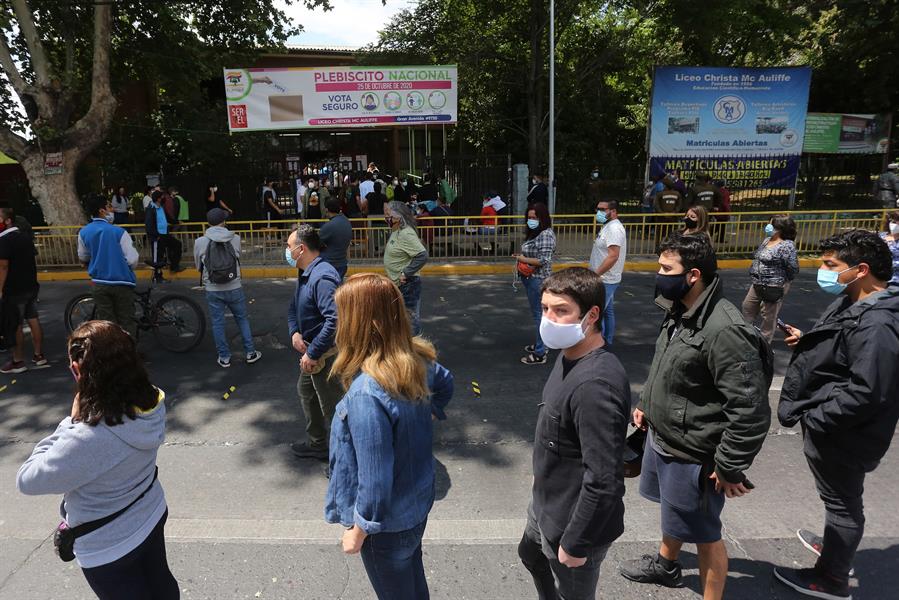
Spanish – The Chilean Electoral Service (SERVEL) announced the results of this Sunday’s plebiscite. The verdict of the Chileans was in favor of reforming the constitution, pushing the country to repeat the history that Venezuela lived 21 years ago when the Chavista regime was born and drafted a new Magna Carta.
With 90.78% of the votes counted, the organization announced that the ‘I approve’ option obtained 78.24% of the votes, while the ‘I reject’ option got 21.76%. Thus, the process to replace the current constitution, written during the dictatorship of Augusto Pinochet (1973-1990), will begin.
The other question raised in the vote was about the body that will write the new text. The Constitutional Convention, a group that would be made up of elected citizens, got 79.24% of the vote
3er BOLETÍN PARCIAL DE RESULTADOS #Plebiscito2020 (1/2)
¿Quiere usted una Nueva Constitución?
Con el 90,78% de las mesas escrutadas, los resultados son los siguientes:
APRUEBO: 78,24%
RECHAZO: 21,76%
— Servicio Electoral (@ServelChile) October 26, 2020
The elections resulted from the 2019 protests, where violent leftist groups caused an estimated 300 million USD in damages to the Santiago Metro alone. Not counting damage to factories and businesses, causing numerous job losses. The excuse for the violence was to demonstrate against the inequalities in Chile.
The next step after the electoral decision will be to elect the constituents that will make up the constitutional Convention (155 popular members) in April 2021. Once elected, they will have a period of nine months (with a single three-month extension) to draft the new Magna Carta, according to El Cronista.
Afterward, the new constitution will be submitted to a vote to approve or reject the text. According to SERVEL, this vote could take place during the first days of the year 2022, and in case it is rejected, the current constitution will continue to be in effect.
Piñera’s words
Sebastián Piñera, President of Chile, recognized the results and said that “citizenship and democracy triumphed.”
“Today, we have once again demonstrated the democratic, participatory, and peaceful nature of the spirit of Chileans and the soul of nations by honoring our tradition as a Republic,” he said.
The president was the one who, after a month of protests, gave in to the disturbances and presented the so-called Agreement for Social Peace and the New Constitution, allowing “the people” to draft and shape the country’s supreme law.
Despite the inequalities claimed by the protesters, at that time, the country had a poverty rate of 8.6% and had the highest minimum wage in South America, according to World Bank data.
Leftist violence
Days before the plebiscite, protesters returned to the streets, burning two churches and looting businesses in the city of Santiago.
The San Francisco de Borja church, regularly used by the Carabineros police force for institutional ceremonies, was the first sanctuary set on fire. Hours later, the Church of the Assumption was burned down.
“Let it fall, let it fall,” shouted some hooded people as they watched the temple burn and then celebrated the fall of the church dome.
There were many warnings about the reform that is now becoming a reality. One that will change the political, social, and economic structure of the country with the best economic and social indicators in Latin America in recent years.
 Versión Español
Versión Español













